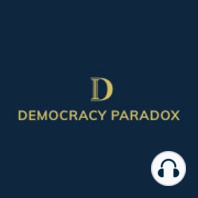54 min listen

Glenn Tiffert on the Manipulation of Academia by Foreign Governments
Glenn Tiffert on the Manipulation of Academia by Foreign Governments
ratings:
Length:
50 minutes
Released:
Dec 15, 2020
Format:
Podcast episode
Description
This week America discovered some startling news. Russians hacked into the email systems of the Commerce and Treasury Departments. The information age has brought about a new era of intelligence and espionage. This was a blatant act of theft, but more subtle forms of espionage are available. Globalization has left many institutions vulnerable to foreign manipulation. I invited Glenn Tiffert from the Hoover Institution to shed light on this phenomenon through a discussion of two of his recent publications. He is the editor of Global Engagement: Rethinking Risk in the Research Enterprise. It is an examination of the ways academic collaboration with China exposes vulnerabilities in our National Defense. It features a forward from former National Security Advisor, H.R. McMaster, and an introduction from icon of democracy scholarship, Larry Diamond. The second publication is a report from the National Endowment for Democracy. It is titled, “Compromising the Knowledge Economy: Authoritarian Challenges to Independent Intellectual Inquiry.” This report explains how authoritarian regimes use sharp power to influence academic institutions. Universities are the heart of political discourse in free societies. E.B. White once wrote, “The reading room of a college library is the very temple of democracy.” When foreign governments manipulate Western academia, it challenges an important source of democratic legitimacy. Larry Diamond explains, “This is more than a national security threat: It is an existential challenge to the entire global liberal order.”Globalization has not simply brought about economic interdependence. It has extended the boundaries of political influence. The United States has long had the advantage of soft power to inspire people around the world. China has now found a form of sharp power to influence the United States in turn. The global order continues to change and evolve so it is incumbent on us to strengthen liberalism and democracy to overcome these challenges. This conversation shares themes with recent episodes that featured John Ikenberry on liberal internationalism and Mareike Ohlberg on the Chinese Communist Party. This is a topic with multiple dimensions. It combines elements of national security with cornerstone values such as liberalism and democracy. Related ContentMareike Ohlberg on the Global Influence of the Chinese Communist PartyJohn Ikenberry on Liberal InternationalismOn the Global Ascendance of ChinaMore from Glenn TiffertGlobal Engagement: Rethinking Risk in the Research EnterpriseCompromising the Knowledge Economy: Authoritarian Challenges to Independent Intellectual InquiryThe Authoritarian Assault on KnowledgeSupport the show
Released:
Dec 15, 2020
Format:
Podcast episode
Titles in the series (100)
Barbara Freese on Corporate Denial by Democracy Paradox